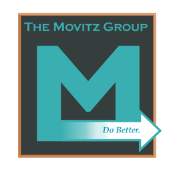|
As I write, events continue to unfold before our eyes, the flow of information is constant, and the entirety of what’s happening is fluid. We know the COVID-19 pandemic has created an unprecedented time of uncertainty, a range of emotions, and behavioral changes. Take a moment to breathe (like right now). The disruption we’re experiencing is extraordinary, but it is temporary, and we will return to normal even if a new normal is yet to be defined. This is part 1 of 2, where we’ll assess the pandemic’s implications on capital accessibility & financial management for CPG, especially for emerging brands. Part 2, here, focuses on commerce, consumer & market dynamics, and their implications on go to market strategies. What’s happening with capital:
Note that the above applies to “many”, not all. Several investors assured me they are still actively seeking deals and to deploy capital as close to the pace as they have been, and are maintaining the same criteria as before. What it means:
What to do: Keep in mind we want to act with two strategic goals in mind: Protect and strengthen our vulnerabilities during the crisis, and set the stage to emerge post-crisis ready to capitalize on opportunities. >> Preserve capital & increase capital efficiency
>> Seek capital
>> Re-forecast & strategically adapt
Additional resources:
Again, this too shall pass. Take practical and prudent action on the things you can control, and accept the things out of our control. Of the latter, go with the flow, for resistance is the source of stress and anxiety. Acceptance is a source of peace and strength. Allow the disruption to inspire new possibilities that will serve us better in our lives. While much seems to be changing, what is important to us has not changed. Relationships may take on more importance, and certainly good health and well-being is a priority. Breathe, and be grateful and mindful of the many blessings we have in our lives today, right now. We’re here to serve – feel free to call or write when you’re ready. Wishing you peace, strength and wellness, Michael Movitz Managing Partner The Movitz Group LLC Click here for part 2: commerce, consumer & market dynamics, and their implications on go to market strategies. I would like to thank my many professional capital friends & colleagues who provided their valuable perspectives for this article:
Amberstone Ventures Asset Based Funding Solutions Bluestein & Associates Cambridge Companies CompanyFirst Findaway Adventures FocalPoint Partners LLC MWNY Pass The Honey RCV Partners Ridgeline Ventures North Castle Partners Safer Made Stage 1 Fund Zenfinity Capital LLC 2X Consumer Products Growth Partners Comments are closed.
|
About The Author...Michael Movitz has more than 25 years natural/organic products industry experience across retail, manufacturer, broker and market research organizations... Archives
March 2020
Categories
All
|
ServicesSpeed of NatureFollow Us! |
Company |
|
© COPYRIGHT 2017. ALL RIGHTS RESERVED.


 RSS Feed
RSS Feed